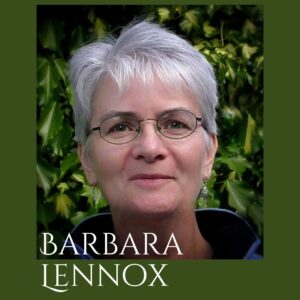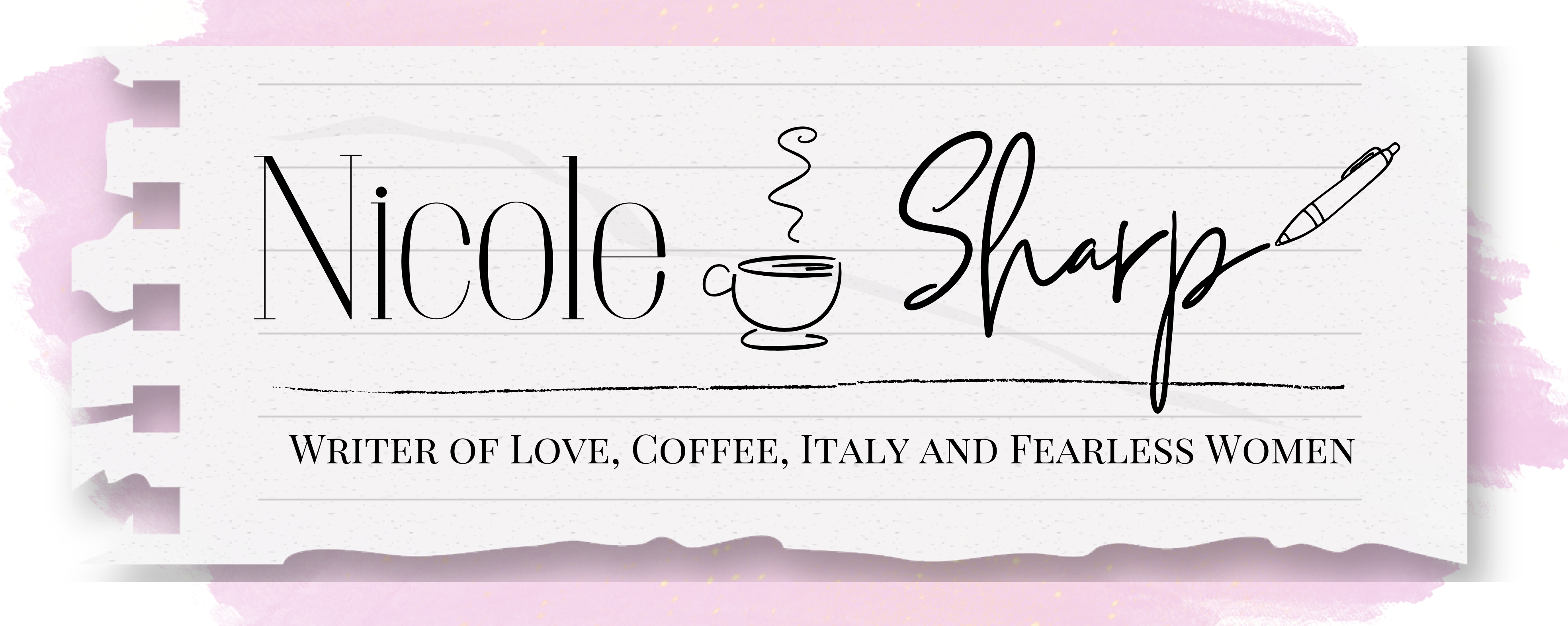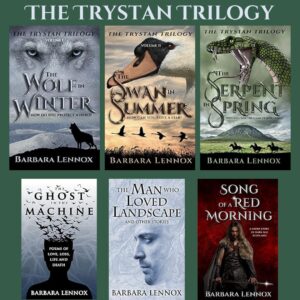Barbara Lennox
 Today’s interview is a dream and you are going to LOVE it!! I’m intimidated and excited and wish I had the funds to fly to Scotland and buy this amazing writer a hot beverage and sit in a cozy inn and chat in person. Please welcome Barbara Lennox, a historical fiction writer whose prose are elegant and storylines are an intense weaving that has been put together so well, it seems effortless.
Today’s interview is a dream and you are going to LOVE it!! I’m intimidated and excited and wish I had the funds to fly to Scotland and buy this amazing writer a hot beverage and sit in a cozy inn and chat in person. Please welcome Barbara Lennox, a historical fiction writer whose prose are elegant and storylines are an intense weaving that has been put together so well, it seems effortless.
In her own words:
“I live in Scotland on the edge of a river, between the mountains and the sea and I’ve been writing for so long that everything has changed. When I started writing, novels were written by hand and/or typed on a manual typewriter. Computers belonged to big science labs and the internet wasn’t even a dream. But, however much things have changed since then, two things remain the same; people still want to read stories and writers still want to tell them.”
SEE!!! Even in her bio she has the power to gently, and with great authority and beauty, intoxicate a reader.
I could go on and on about Barbara, but let’s jump in. First things first, we’ll get the important stuff out of the way:
Nicole – Coffee or Tea:
Barbara – Coffee, but unfortunately I can’t take caffeine anymore, so it’s decaff coffee now. I like to like tea – it sounds so interesting – but it’s too ‘leafy’.
Geoffrey Chaucer or Sir Thomas Malory (and yes, I know this is a loaded ‘this or that’ question:
It has to be Thomas Malory, though I’m not fond of his high mediaeval interpretation of the Arthurian legend. Chaucer is a bit racy for me!
Morning or Night:
Definitely morning. It’s the only time my brain works, so that’s when I do creative writing, though I can do destructive writing (editing) at any time of the day.
Dragons or Unicorns:
Dragons, despite Unicorns being the national beast of Scotland.
Okay now that the important stuff is out of the way, let’s really jump in. Thank you so much for agreeing to be part of my Interviews with Indies, I am truly grateful to have you here.
Now, I know I’ve heard it mentioned in something I read of yours, that you are a scientist. What sort of science?
My first degree was in genetics and my second was in molecular biology, then I spent a few years in a lab in Germany as a postdoc researcher. So when I returned to the UK, I switched to University administration, but in a science research group so I could still keep my hand in. Becoming an administrator meant I had to learn how to type, spell and punctuate, which turned out to be quite useful when I started writing. I’ve forgotten everything I ever knew about genetics and molecular biology but I still think like a scientist. I’m always asking ‘why is that?’, ‘what’s the evidence for that statement?’ or ‘what was the control experiment?’ And I understand statistics. Not many people do!
On your Instagram account, you sometimes post pictures of hikes you take. So now I have this image of Scotland set up in my mind and I want to hike the whole of it. How often do you hike? And do you have a favorite place/hike?
I don’t get out hillwalking as often as I’d like or as often as I used to – maybe once a month now. My nearest area is the southern Cairngorms and that’s my favourite place to go. I prefer walking on the high plateaus of the Cairngorms to climbing the pointy hills of the west coast. But every area has its own charm and I love Torridon and Glen Coe and Skye (all very pointy hills on the west coast). But these are very popular areas and are pretty busy these days. I like to get away from people so I prefer my wide open plateaus!
What drew you to the historical fiction genre?
I hated history at school and gave it up as soon as I could, but I always enjoyed reading historical fiction. Historical fiction brings history to life and I suppose reading and writing historical fiction is a painless way of experiencing what it might have been like to live in the past. I was brought up on myths and legends, including the Arthurian myths, so when I discovered that Arthur might have been a real person I immersed myself in all the various theories – some more believable than others. I also loved the way some novelists took those theories and sources and brought them to life, though it was a long time before I thought of writing something myself.
You wrote an epic retelling of the classic Arthurian story of Tristan and Isolde. Set in the Dark Ages. In Scotland. (I have to admit, that’s what drew me to the book in the first place.) But the research alone, just to write this book must have been an epic undertaking. What kind of sources did you use?
I was keen to write a story set in dark age Scotland since so little is known about the period that I reckoned I wouldn’t have to do much research. Wrong! When I began to write I found I needed to understand what it was like to have lived in those times – what people thought and believed in, what they had for breakfast, how they said ‘fifteen minutes later’ when there were no clocks, (still haven’t solved that one) and whether they had pockets in their clothes (apparently not, but why not? It seems so obvious!) I spent a lot of time in University libraries reading some very dry texts on archaeology and celtic culture and extrapolating from them in order to put together a world that at the very least didn’t contradict the little that was known.
As far as researching settings goes, one reason for setting my trilogy in Scotland was so I could go and visit all the places in my books. The only place I’ve not been to is the island of Ailsa Craig, but it’s on my to-do list. The valley of Kilmartin, in Argyll, is famous for its stone age tombs and standing stones, as well as the rock of Dunadd, and it’s so atmospheric. I just had to set part of my trilogy there. And I just had to include a crannog once I’d visited a reconstruction.
I adore maps and spend a lot of time looking at them, both modern and on-line ancient maps, so that’s another valuable research source.
I’m sure your research took you down a lot of interesting paths, what was the most memorable/exciting/coolest thing you found in researching this tale?
I’m still awestruck by how much forgotten history remains in place names. My novel opens on Traprain Law, once called Dunpeldyr, which means something like Fort of the Spear Shafts. Traprain Law itself has a welsh root – Tref means farm and Prain is either Pren (tree) or Bryn (hill). The Law part of the name is Anglo-saxon. The area in which Traprain Law/Dunpeldyr is to be found, East Lothian, would originally have been an area occupied by Britons. So Scotland, as we know it, was founded by Britons who were Welsh, then by Scots who came from Ireland, and some Anglo-saxons from Germany and Denmark. Very confusing, but also kind of cool.
You seem to seamlessly make sure your work of historical fiction is accessible to the reader. By that I mean I was completely immersed in the life, sights, sounds of your book. You have a gift for narrative and I was engaged and entertained. Even though the Dark Ages of Scotland are a far cry from my little corner of the world or century. Now is there a question here? I’d love to ask how you accomplish this, but I fear that would require a master class. So I suppose the question is this: How did you decide to juggle historical accuracy in your books?
Ooh, that’s a difficult question! I tried not to include things I knew didn’t exist at the time – such as stirrups on horses. But for most things I made an educated guess. I’m not a historian, of course, so I make mistakes and have been picked up on them. One of my beta-readers pointed out that crossbow bolts weren’t fletched and that leather vanes would have been used. Someone else objected to my use of the word gunwhale (part of a ship) since that wasn’t used until guns were invented – oops! But the one thing I try to get right or at least consistent, is attitudes. People thought very differently in the past and something that annoys me in some historical fiction is seeing modern attitudes imposed on the past. I recently read a historical novel in which ‘self-care’ was mentioned, another talking about ‘snacks’ – both very much 21st century concepts. So I try to make my fiction a window into a past world, even if the people in that world had opinions we’d find unacceptable today. But it’s very much a balancing act.
Do you have a favorite historical fiction novel or series?
I love everything Bernard Cornwell has written, from The Last Kingdom series. to the Warlord Chronicles (about Arthur) and the Sharpe series, about the Napoleonic wars. And I’ll read anything by the historical fantasy writer Guy Gavriel Kay. But my all time favourite author, who wrote my all-time favourite Arthurian retelling, is Rosemary Sutcliff. She has such an amazing way with words and her descriptions are awesome. If I could write just one sentence like her I’d be a happy writer!
What do you do when you’re not writing?
I have a big garden which is a lot of work. Usually I enjoy it, but sometimes it can be a chore (weeding). We also own a small woodland about half an hour’s drive away, and usually spend a day there once a week. We’re trying to make it more ecologically diverse by replacing old and sick non-native north-american spruce with broad-leaved native trees. At the moment, however, that project is on hold since we’re still clearing up after the recent storms that blew a lot of the old trees down. I also like to get out walking, preferably up a hill, but I’m happy enough if I can just get into the countryside.
What are you currently working on?
I decided to write a series of short stories based on characters from my trilogy, just to get myself back into writing. I thought this would be quick to do, but I was wrong! I’ve written a few prequel stories that are more like novellas than short stories and which need serious editing. I’m currently working on a novella called The Auroch in Autumn. After writing three books in the trilogy based on spring, summer and winter, I felt I needed an autumn, so that’s the current project. It’s a bit of a mess but I’m enjoying finding out about the character. It turns out I’m a discovery writer, but I’m OK with that.
In the long term, once these ‘quick’ stories are out of the way, I’d like to write a novel about the Roman invasion of Scotland in the first century. I’ve planned it out, but I know I need to do lots and lots of research for this one. I don’t mind, though. I love research!
I can’t thank you enough for your time and your books. I know these were some intense questions, but they were the foremost in my mind. I have so many more I would love to ask; so maybe I’ll show up one day and we’ll hike up a hill in Scotland and continue this chat.
Isn’t she the coolest?! You can find Barbara on:
Instagram:
https://www.instagram.com/barbaralennoxauthor/
Website:
https://barbaralennox.wordpress.com/
And Barbara’s books can be found here:
Wolf in Winter: https://books2read.com/thewolfinwinter
Swan in Summer: https://books2read.com/theswaninsummer
Serpent in Spring: https://books2read.com/theserpentinspring
Man who loved landscapes: https://books2read.com/themanwholovedlandscape
The Ghost in the Machine: https://books2read.com/theghostinthemachine
Sign up for her newsletter to get a free copy of
Song of a Red Morning:

